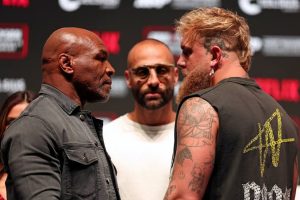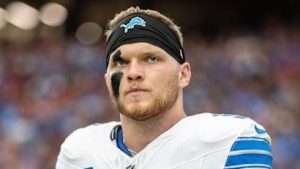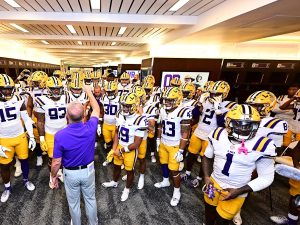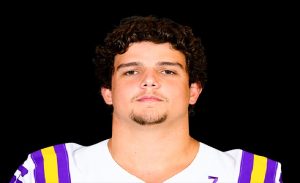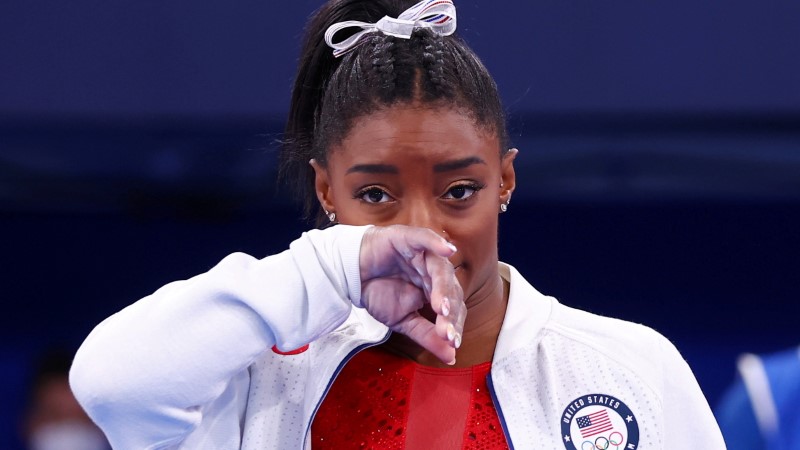
Tokyo 2020 Olympics - Gymnastics - Artistic - Women's Team - Final - Ariake Gymnastics Centre, Tokyo, Japan - July 27, 2021. Simone Biles of the United States during the Women's Team Final REUTERS/Mike Blake/File Photo
 Biles, Osaka and Phelps spoke up about mental health. Has anything changed for the Paris Olympics?
Biles, Osaka and Phelps spoke up about mental health. Has anything changed for the Paris Olympics?
Lydia Jacoby was a breakout star in the pool for the United States at the last Summer Games, earning a gold medal in the 100-meter breaststroke and a relay silver. Part of what comes to mind from those heady days in Tokyo? “People talking about post-Olympic depression,” she said.
She was 17 at the time, and her initial response when other athletes brought up the topic was: “Well, that doesn’t apply to me.”
“I essentially did not understand the topic of depression,” she said. “It wasn’t until after the Games that I was like, ‘Oh. … OK. Yeah, I’m feeling this a little.’”
Jacoby, who didn’t qualify for the 2024 Olympics, is now fully aware of the phenomenon, went through it, moved past it and discusses it casually, all of which points to the way things have changed in just a few years when it comes to mental health.
As the Paris Games open on Friday, followed by the Paralympics beginning Aug. 28, athletes have more access than ever to resources in that once-taboo realm and sound more willing than ever to use them. That seems particularly significant given that Jessica Bartley, the U.S. Olympic and Paralympic Committee’s senior director of psychological services, says about half of the country’s athletes at the past two Olympiads were flagged for at least one of the following: anxiety, depression, sleep disorders, eating disorders, substance use or abuse.
“We really are just a part of the conversation now,” Bartley said, “and not an afterthought or something when someone’s struggling.”
Among the key questions now: Is everyone going to seek the help they need? And is enough help available?
As for the first, Bartley said: “I’d like to think we’re over the hump, but we’re still not quite there. I feel like there is still some stigma. I think there’s still some connections to ‘weakness.’”
And the second? “I do think there still could be more,” track star Gabby Thomas said, “but, I mean, they’re there.”
Olympians Simone Biles, Naomi Osaka and Michael Phelps opened doors
Three Olympians — Simone Biles and Naomi Osaka, who participated in the last pandemic-delayed Summer Games, and are returning, and retired swimmer Michael Phelps, who has more medals than anyone in any sport — provided some of the loudest voices in the growing global conversation in sports and society at large about the importance of protecting, gauging and improving the state of one’s mind as much as one’s body.
Phelps spoke about having suicidal thoughts at the height of his career and helped produce a documentary about depression among Olympians. He also called on the International Olympic Committee and USOPC to do more.
“I do think there’s something to be said when a lot of really, really good athletes kind of talk about the same issue. I know all athletes don’t feel the same way; you have to be a certain type or in a certain head space. Some people just feel things differently,” said Osaka, a four-time Grand Slam champion and former No. 1-ranked player in tennis who lit the cauldron in Japan.
She’s been forthcoming about her bouts with anxiety and depression and was among the first sports figures to take mental-health breaks away from competition, paving the way for others.
Osaka, in turn, said she felt “very heard” when she listened to Biles and Phelps.
“I’m pretty sure a lot of different athletes also felt heard,” Osaka said. “They didn’t feel like it was a weakness or anything like that, so I’m really glad we all talked about it.”
Biles, who redefined excellence in gymnastics and picked up seven Olympic medals along the way, drew attention and, from some, criticism, for pulling out of events in Tokyo because of a mental block — known in the gymnastics world as “the twisties” — that made her afraid to attempt certain dangerous moves.


